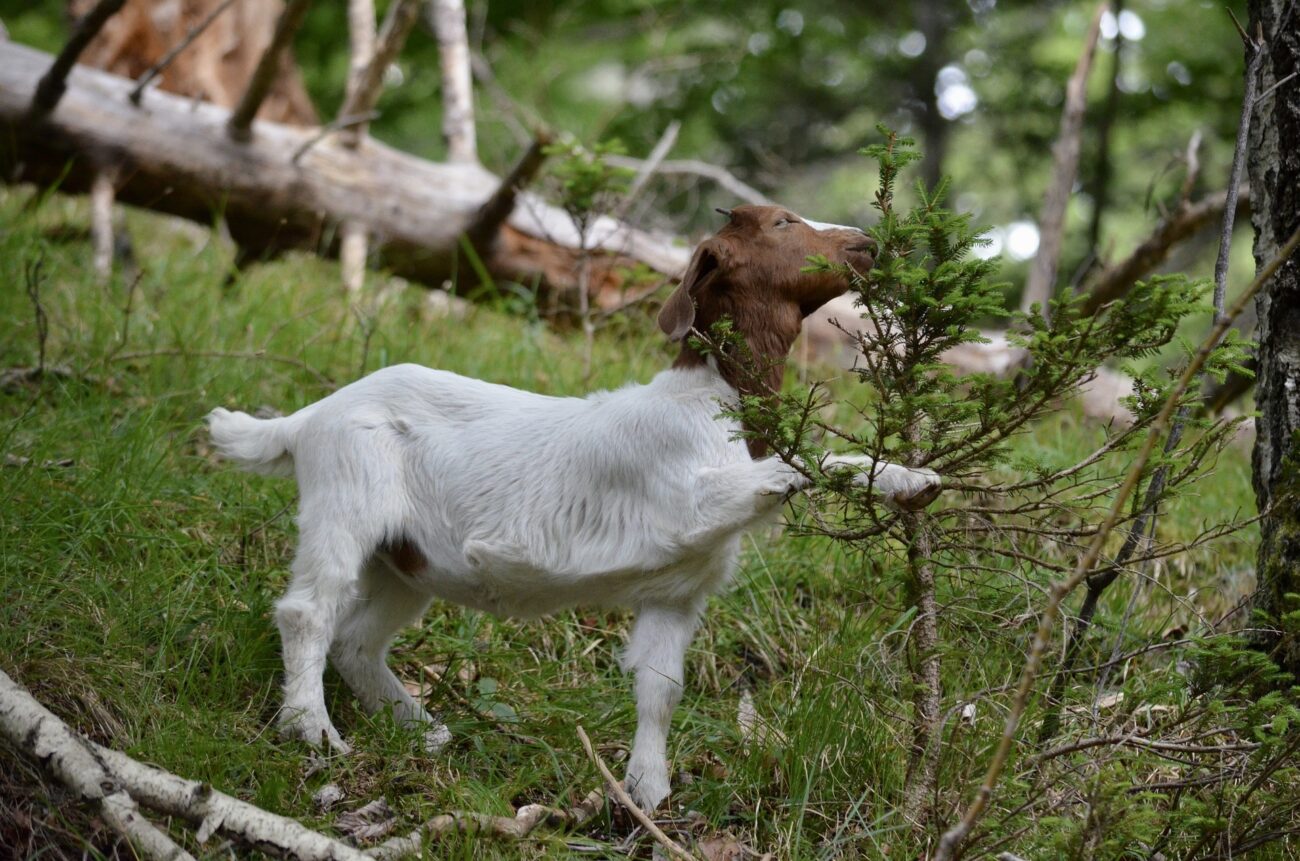Hundreds of grazing goats are hired yearly to help clear out California’s overgrowth and vegetation, which fuels wildfires if left untamed.
California’s Overtime Law May Increase Wildfires?
These voracious herbivores are in high demand to devour weeds and shrubs that have proliferated across California after a drought-busting winter of heavy rain and snow.
“It’s a huge fuel source. If it was left untamed, it can grow very high. And then when the summer dries everything out, it’s the perfect fuel for a fire,” said Jason Poupolo, parks superintendent for the city of West Sacramento, where goats grazed on a recent afternoon.
Targeted grazing is part of California’s strategy to reduce wildfire risk because goats can eat a wide variety of vegetation and graze in steep, rocky terrain that’s hard to access. Backers say they’re an eco-friendly alternative to chemical herbicides or weed-whacking machines that make noise and pollution.
Targeted grazing is part of California’s strategy to reduce wildfire risk because goats can eat a wide variety of vegetation and graze in steep, rocky terrain that’s hard to access. Backers say they’re an eco-friendly alternative to chemical herbicides or weed-whacking machines that make noise and pollution.
But new state labor regulations are making it more expensive to provide goat-grazing services, and herding companies say the rules threaten to put them out of business.
According to the California Farm Bureau, the changes could raise the monthly salary of herders from about $3,730 to $14,000.
Herder Wages Increase Drastically – And Fast
California is investing heavily in wildfire prevention after the state was ravaged by several years of destructive flames that scorched millions of acres, destroyed thousands of homes, and killed dozens of people. Goats have been used to clear around Lake Oroville, along Highway 101, and near the Ronald Reagan Presidential Library.
Companies have historically been allowed to pay goat and sheepherders a monthly minimum salary rather than an hourly minimum wage because their jobs require them to be on-call 24 hours a day, seven days a week.
But legislation signed in 2016 also entitles them to overtime pay.
It effectively boosted the herders’ minimum monthly pay from $1,955 in 2019 to $3,730 this year. According to the California Department of Industrial Relations, it’s set to hit $4,381 in 2025.
Companies typically put about one herder in charge of 400 goats. Many of the herders in California are from Peru and live in employer-provided trailers near grazing sites.
Labor advocates say the state should investigate goatherders’ working and living conditions before making law changes, especially since the state is funding goat grazing to reduce wildfire risk.
Herding Companies Sue California – at A Price to Consumers
So far, the herding companies, which have sued over the law, have passed along most of the increased labor costs to their customers.
But in January, those labor costs are set to jump sharply again.
Goatherders and sheepherders always followed the same set of labor rules last year. But a state agency has ruled that’s no longer allowed, meaning goatherders would be subject to the same labor laws as other farm workers.
That would mean goatherders would be entitled to higher pay — up to $14,000 monthly. Last year a budget trailer bill delayed that pay requirement for one year, but it’s set to take effect on Jan. 1 if nothing changes the law.
“I can’t pay $14,000 a month to an employee starting Jan. 1. There’s just not enough money. The cities can’t absorb that kind of cost,” Tim Arrowsmith, owner of Western Grazers, said. “What’s at stake for the public is your house could burn up because we can’t fire-mitigate.”
Get the news you need at It’s On News.



Be good if tweet button went to article. Was gonna share but…
We will work on this feature, thank you!
It’s On News Staff
Communists (DemocRATs) are one EVIL group of SCUM.